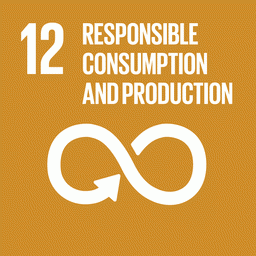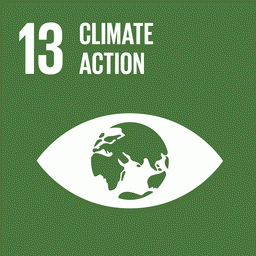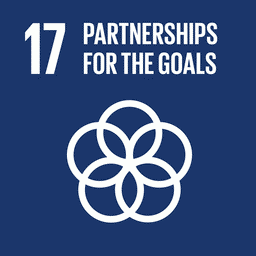By Bibiana Alcântara Garrido*, from Beijing
Five Brazilian non-governmental organizations joined forces in Beijing, China, from June 16 to 20, to expand research partnerships focused on combating climate change.
The mission “Enhancing Brazil-China Cooperation in Promoting Sustainable Development” was promoted by IPAM (Amazon Environmental Research Institute) and the philanthropic organization iCS (Instituto Clima e Sociedade). Participants included Imazon, Plataforma CIPÓ, Instituto Centro de Vida and Instituto O Mundo Que Queremos.

Visit to an organic food farm in a district of Beijing (Photo: BellaTerra/Reproduction)
“Protecting the Amazon is central to the planet’s climate and food security. Brazil and China are great trading partners and share a vision of South-South cooperation. What we’ve come here to do is share scientific information to bring this relationship even closer,” says André Guimarães, executive director of IPAM and special envoy of the COP30 Presidency for civil society.
The initiative takes place in an emblematic year for the relationship between the two countries, with Brazil’s presidency of the BRICS and COP30 in Belém. Olivia Zerbini, a research analyst at IPAM and one of the organizers of the mission, recalls that “the two countries completed 50 years of diplomatic relations in 2024, celebrated with the signing of bilateral agreements and the deepening of cooperation spaces such as COSBAN [Sino-Brazilian High-Level Concertation and Cooperation Commission]”. She added: “The shared desire to continue working together is clear, and it is fundamental for this cooperation to be based on a sustainable long-term premise.”
“The aim of this trip is to strengthen the capacity of Brazilian organizations to develop and implement strategies and activities that promote cooperation between Brazil and China in favor of sustainability,” says Thais Ferraz, program director at iCS. “The meetings in China allowed for an exchange of experiences between the two countries, with possibilities for future joint actions, such as technical cooperation and research projects in various areas.”
One of the mission’s first engagements in China was a workshop attended by more than 25 Chinese organizations, universities and research institutes. Also during the week, the Brazilian NGOs held meetings with representatives from Tsinghua University, Renmin University and China Agricultural University, as well as the Chinese Academies of Agricultural Sciences and Social Sciences.
“What was established on this trip is that the different segments of Chinese society, whether government, academia or industry, are very interested in data on the relationship between agricultural production and forests and water availability. They want data because they understand the relationship between the sustainability of agricultural production and climate change, but also, and above all, they are very concerned about food security,” adds Alice Thuault, executive director of the ICV.
Among the government bodies visited by the mission were representatives from the Chinese Ministry of Ecology and Environment, the China Center for International Cooperation, the National Development and Reform Commission, and the Green Coalition of the Belt and Road Initiative.
“I presented the connection between Brazilian livestock farming and China and the opportunities for cooperation. We already have a concrete example of how a Chinese decision to demand quality induced farmers to improve production, with the China beef. If environmental criteria are added, there is potential for this influence to be positively amplified. There is a great deal of interest in cooperation in various areas, especially in universities, also in relation to artificial intelligence – something that could benefit various sectors in Brazil,” explains Paulo Barreto, associate researcher at Imazon.
The group shared the results of studies focusing on the relationship between human actions and nature conservation, from the perspective of how sustainable development can benefit from the ecological services provided by ecosystems. The risks posed by climate change were highlighted, especially with regard to agriculture: according to research by IPAM, if the climate continues to warm up, around 70% of arable areas in the Center-West of Brazil will be unable to be planted.
“Looking at the climate and just transition agenda, it’s very interesting to understand Chinese methodologies and green technologies for moving towards a low-carbon economy, as well as sharing our knowledge and work history. In this sense, envisioning good practices and research partnerships enriches a common goal,” says Mariana Rondon, program director at Plataforma CIPÓ.
In addition to the appointments in Beijing, the organizations visited an organic vegetable farm in a pilot district of the Chinese capital for organic agriculture, where they were able to learn about the production that directly serves restaurants and supermarkets with an annual volume of 3,000 tons of food.
For Alexandre Mansur, project director at The World We Want, “we are opening doors to partnerships with various non-governmental organizations native to China and government bodies. We have found a surprising alignment of vision of nature as the infrastructure that guarantees food production for both countries. We are building foundations for joint research and other synergistic work for food security in Brazil and China.”
The mission was supported by the BellaTerra consultancy, headed by specialist Isabel Nepstad. “Throughout my 13 years working in China to promote sustainable supply chains, I was deeply impressed by the technical knowledge and robust scientific research that this Brazilian delegation presented during the mission. The dialogues with Chinese stakeholders represented exactly the kind of cooperation needed – a strategic, science-based partnership to turn climate and environmental commitments into concrete action. This is the basis for long-term collaboration between Brazil and China, aligning investments with proven solutions to protect the climate and biodiversity,” he says.
Once the joint agenda of Brazilian NGOs in China has been completed, the next steps involve meetings to work out the details of the research projects to be developed. IPAM will continue its program in the Chinese capital until the 30th, with visits to Shanghai and Hangzhou.
*IPAM Communications Specialist, bibiana.garrido@ipam.org.br
Cover photo: visit to an organic food farm in a district of Beijing (Photo: BellaTerra/Reproduction)














